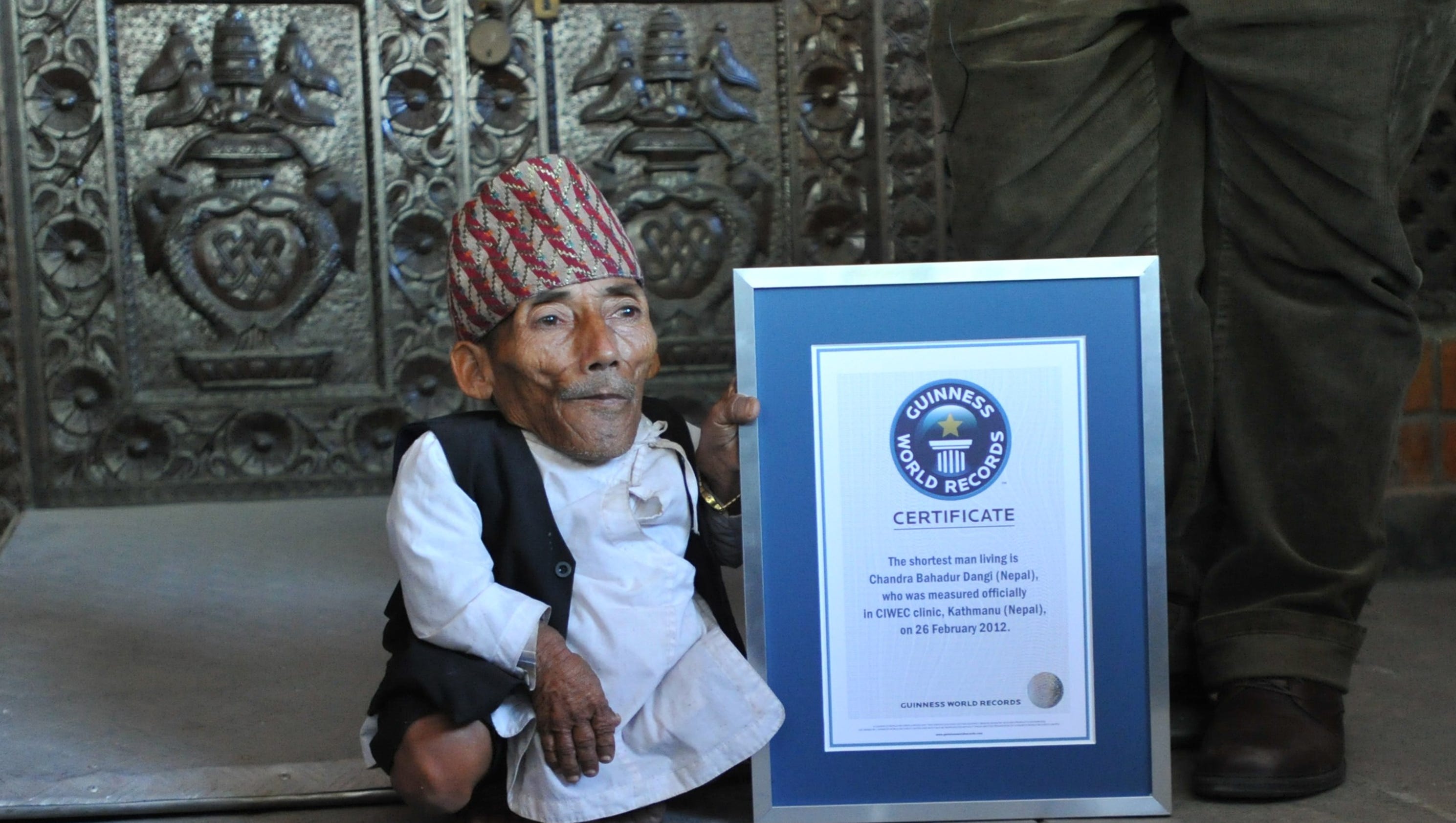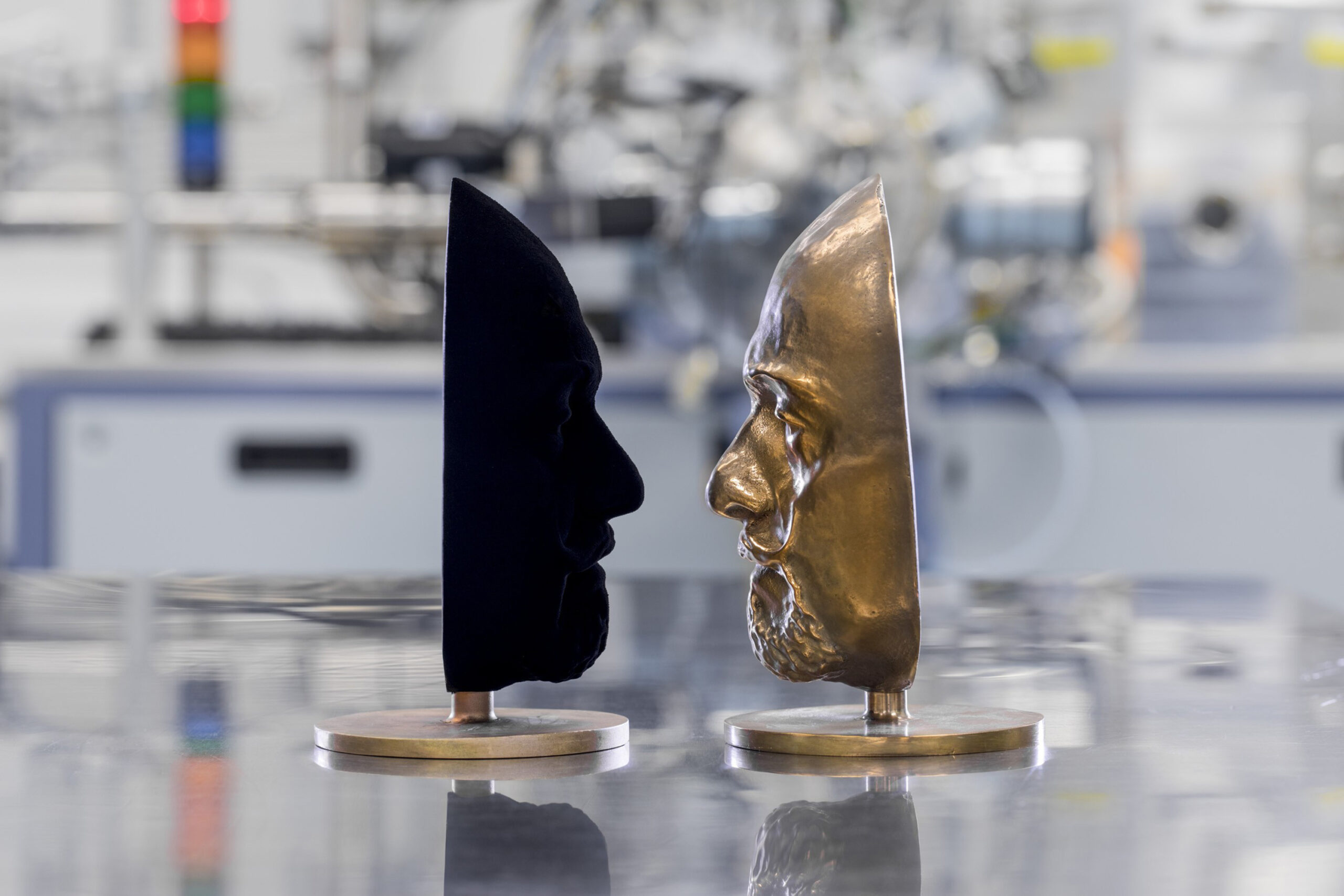The Blackest Man In The World: A Journey Beyond Shades
Have you ever heard of the term "the blackest man in the world"? It’s not just about pigmentation; it’s a story of resilience, science, and human diversity. The phrase might sound intriguing, but trust me, there’s so much more to it than meets the eye. Whether you’re here out of curiosity or looking for answers, this article will dive deep into the science, culture, and stories surrounding this topic. So, buckle up and let’s explore together!
This isn’t just another clickbait title. The concept of "the blackest man in the world" opens doors to fascinating discussions about melanin, genetics, and societal perceptions. It’s about embracing diversity and understanding the science behind what makes each of us unique. So, whether you’re a science enthusiast, a culture geek, or just someone who loves learning new things, this article has got you covered.
Before we dive into the nitty-gritty, let’s set the stage. This article isn’t just about facts and figures; it’s about people, stories, and the human experience. We’ll explore the science behind melanin, delve into cultural perceptions, and even touch on some incredible individuals who embody the phrase "the blackest man in the world." Ready? Let’s go!
- Bradley Cooper Wife The Love Story Yoursquove Been Waiting For
- Katie Ledecky Debunking Myths And Celebrating An Olympic Icon
What Does "The Blackest Man in the World" Really Mean?
When we talk about "the blackest man in the world," we’re not just talking about skin color. It’s a term that encompasses science, culture, and even philosophy. Melanin, the pigment responsible for skin color, plays a crucial role in this discussion. But what exactly does it mean to be the "blackest man"? Is it about having the darkest skin tone? Or is there more to it?
Let’s break it down. Melanin is produced by cells called melanocytes, and its production varies from person to person based on genetics, environment, and other factors. The darker your skin, the more melanin you have. But here’s the twist: melanin isn’t just about skin color. It also protects our skin from harmful UV rays, which is why people with darker skin are less prone to sunburns and certain types of skin cancer.
So, when we say "the blackest man in the world," we’re talking about someone with an exceptionally high level of melanin. But that’s not all. It’s also about the cultural significance of dark skin and the stories of people who embrace their melanin with pride.
- Sabrina Banks Onlyfans The Ultimate Guide To Her Content Journey And More
- Victoria Jane Verstappen The Rising Star In Motorsport World
Understanding Melanin: The Science Behind the Blackest Man
Melanin is the superhero of the skin world. It’s what gives color to our hair, eyes, and skin, and it’s also our body’s natural sunscreen. But how does it work? Melanin absorbs UV radiation, preventing it from damaging our DNA. This is why people with darker skin are less likely to develop skin cancer from sun exposure.
- Melanin protects the skin from harmful UV rays.
- Higher melanin levels mean darker skin tones.
- Melanin production is influenced by genetics and environmental factors.
But here’s the kicker: melanin isn’t just about protection. It’s also about beauty. In many cultures, dark skin is celebrated as a symbol of strength, resilience, and beauty. And that’s where our journey into "the blackest man in the world" becomes even more fascinating.
The Cultural Significance of Dark Skin
Culture plays a huge role in how we perceive skin color. In many societies, dark skin is associated with strength, beauty, and resilience. But it hasn’t always been that way. For centuries, people with darker skin have faced discrimination and prejudice. Despite this, they’ve continued to embrace their melanin with pride.
Take a look at history. From ancient civilizations to modern-day celebrities, dark-skinned individuals have been celebrated for their beauty and achievements. Think of icons like Nelson Mandela, Oprah Winfrey, and Beyoncé. These individuals have not only broken barriers but have also inspired millions to embrace their unique qualities.
But the cultural significance of dark skin goes beyond celebrities. It’s about empowering communities and celebrating diversity. It’s about recognizing that beauty comes in all shades and that melanin is something to be proud of.
Breaking Stereotypes: The Blackest Man in the World
Stereotypes about skin color have been around for far too long. But people like "the blackest man in the world" are breaking those stereotypes one step at a time. By embracing their melanin and sharing their stories, they’re showing the world that dark skin is beautiful, powerful, and worthy of celebration.
- Stereotypes about dark skin are being challenged every day.
- People with darker skin are using their voices to promote equality and acceptance.
- Embracing melanin is about more than just appearance; it’s about self-worth and identity.
So, when we talk about "the blackest man in the world," we’re not just talking about skin color. We’re talking about a movement, a mindset, and a celebration of diversity.
Who Is the Blackest Man in the World?
Now, let’s talk about the person behind the phrase. While the title "the blackest man in the world" might sound like a superlative, it’s actually based on real-life individuals who have exceptionally high levels of melanin. One such person is Deep Saini, a man from India who gained international attention for his incredibly dark skin tone.
Deep Saini’s story is one of acceptance and empowerment. Despite facing challenges and misconceptions, he embraced his melanin and became a symbol of pride for many. His journey is a testament to the power of self-acceptance and the importance of celebrating diversity.
But Deep isn’t the only one. There are countless individuals around the world who embody the spirit of "the blackest man in the world." Each of them has a unique story to tell, and each of them contributes to a broader conversation about melanin, culture, and identity.
Deep Saini: A Closer Look
Let’s take a closer look at Deep Saini, the man often referred to as "the blackest man in the world." Here’s a quick overview of his life and achievements:
| Name | Deep Saini |
|---|---|
| Birthplace | India |
| Claim to Fame | Exceptionally high melanin levels |
| Profession | Model, Activist |
| Message | Promoting self-acceptance and celebrating melanin |
Deep’s story is more than just about his skin tone. It’s about breaking barriers, challenging stereotypes, and inspiring others to embrace their uniqueness.
The Science Behind Melanin: A Deeper Dive
Now that we’ve talked about the cultural significance of dark skin, let’s dive deeper into the science behind melanin. How does it work? What factors influence its production? And why is it so important?
Melanin is produced by specialized cells called melanocytes, which are found in the skin, hair, and eyes. There are two main types of melanin: eumelanin, which is responsible for dark colors, and pheomelanin, which is responsible for lighter colors. The type and amount of melanin produced depend on a variety of factors, including genetics, sunlight exposure, and hormonal changes.
But here’s the fascinating part: melanin doesn’t just affect skin color. It also plays a role in other bodily functions, such as hearing and vision. In fact, studies have shown that people with higher levels of melanin may have better hearing and sharper vision.
Factors That Influence Melanin Production
So, what influences melanin production? Here are some key factors:
- Genetics: Your DNA determines how much melanin your body produces.
- Sunlight: Exposure to UV rays can increase melanin production, leading to a darker skin tone.
- Hormones: Hormonal changes, such as those during pregnancy or puberty, can affect melanin levels.
- Age: As we age, our melanin production may decrease, leading to lighter skin and gray hair.
Understanding these factors can help us appreciate the complexity of melanin and its role in our lives.
The Blackest Man in the World: A Celebration of Melanin
As we’ve seen, "the blackest man in the world" isn’t just about skin color. It’s about celebrating melanin, embracing diversity, and promoting equality. It’s about recognizing that beauty comes in all shades and that each of us is unique and valuable.
But the journey doesn’t stop here. There’s still so much to learn and so much to celebrate. Whether you’re someone with dark skin or someone who appreciates the beauty of diversity, there’s always room for growth and understanding.
How You Can Celebrate Melanin
Here are some ways you can celebrate melanin and promote diversity:
- Learn about the science behind melanin and its role in our bodies.
- Support individuals and communities that embrace their melanin with pride.
- Challenge stereotypes and promote equality in your daily life.
- Celebrate the beauty of diversity in all its forms.
By doing these things, you’re not just celebrating melanin; you’re contributing to a broader movement of acceptance and understanding.
Conclusion: The Blackest Man in the World and Beyond
In conclusion, the phrase "the blackest man in the world" is more than just a superlative. It’s a celebration of melanin, a recognition of diversity, and a call to action for equality and acceptance. From the science of melanin to the cultural significance of dark skin, this topic opens up a world of possibilities for learning and growth.
So, what can you do next? Start by embracing your own uniqueness and celebrating the diversity around you. Share this article with your friends and family, and join the conversation. Together, we can create a world where everyone feels valued and appreciated.
And remember, the journey doesn’t end here. There’s always more to learn, more to celebrate, and more to discover. So, keep exploring, keep questioning, and keep celebrating the beauty of being human.
Table of Contents
- What Does "The Blackest Man in the World" Really Mean?
- Understanding Melanin: The Science Behind the Blackest Man
- The Cultural Significance of Dark Skin
- Breaking Stereotypes: The Blackest Man in the World
- Who Is the Blackest Man in the World?
- Deep Saini: A Closer Look
- The Science Behind Melanin: A Deeper Dive
- Factors That Influence Melanin Production
- The Blackest Man in the World: A Celebration of Melanin
- How You Can Celebrate Melanin



Detail Author:
- Name : Dusty Jenkins
- Username : smith.robyn
- Email : sigurd.nienow@yahoo.com
- Birthdate : 1972-02-19
- Address : 3404 Harris Drive Apt. 838 Joyview, MS 96821-2592
- Phone : (240) 903-5050
- Company : Schroeder, Schumm and Block
- Job : Answering Service
- Bio : Commodi ea dignissimos sapiente aut nemo iure quaerat velit. Laudantium accusantium maxime nesciunt praesentium. Eum a cumque deleniti ut omnis cum.
Socials
twitter:
- url : https://twitter.com/greenholt1984
- username : greenholt1984
- bio : Est quibusdam velit non numquam voluptatibus non illo. Dolor et libero architecto officiis. Veniam enim exercitationem iste quidem nesciunt.
- followers : 1200
- following : 260
instagram:
- url : https://instagram.com/serenagreenholt
- username : serenagreenholt
- bio : Et esse ut unde sapiente quo neque sit aperiam. Pariatur laudantium maxime aperiam fugit in.
- followers : 4783
- following : 2392
facebook:
- url : https://facebook.com/serena_greenholt
- username : serena_greenholt
- bio : Quasi dicta quae dolorem eligendi facilis. Fuga autem harum assumenda modi ex.
- followers : 2495
- following : 2912